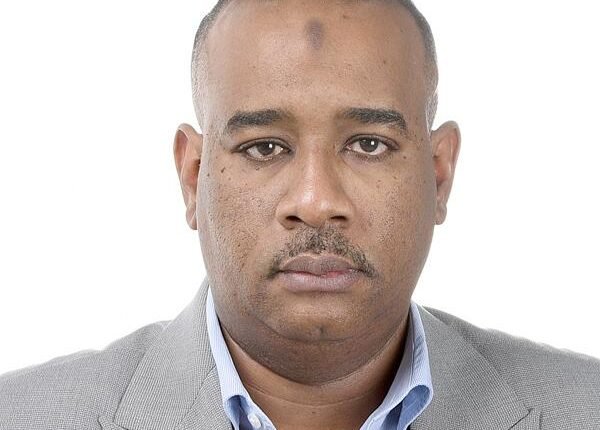Washington Between Relief and Accountability: Does the US Hold the Keys to Peace in Sudan?

By Muhannad Awad Mahmoud
The United States is navigating the Sudan file with careful steps, balancing a humanitarian–security effort–centred on securing a comprehensive ceasefire and safe aid corridors, with a political track aimed at establishing a civilian-led transition that neither rewards the rebel militia nor grants it new political legitimacy.
The recent Swiss meeting between General Abdel Fattah al-Burhan and US envoy Musaad Boulos signalled a shift from public conferences to a quieter, more focused diplomacy — one that prioritises halting the humanitarian bloodshed as a foundation for a disciplined political process.
Washington’s drive stems from overlapping considerations:
Red Sea security and global shipping are affected by rising costs and vessels diverting from the Suez Canal.
Accountability for atrocities, after the US State Department formally determined that members of the Rapid Support Forces (RSF) and allied militias committed acts amounting to genocide in Darfur, coupled with sanctions — a designation that obliges the US to link peace with justice.
Geopolitical competition, notably the resurfacing of Russia’s Port Sudan naval base proposal, which Washington sees as a direct challenge to its influence.
Regional stability is threatened by fears of expanding displacement, irregular migration, and cross-border terrorism if the war drags on.
Since the 2024 Geneva talks, broad conferences have failed to produce real breakthroughs. In response, Washington launched the Aligned for Advancing Lifesaving and Peace in Sudan (ALPS) platform — designed to coordinate humanitarian pressure while keeping a diplomatic track open through regular statements. Behind the scenes, however, it has relied on quiet understandings with Sudanese authorities to secure incremental progress. The Swiss encounter reflected this approach: pursue a monitored ceasefire, guarantee aid delivery, then build on that to launch a political pathway.
The key question remains: will Washington push for inclusive negotiations, or align with Khartoum’s stance of excluding and criminalising the RSF? The evidence points to the latter. For the US, negotiations are a means, not a reward: talks must be conditional on a verified ceasefire and humanitarian access. Following the genocide designation issued by the State Department on 7 January 2025, it has become nearly impossible for Washington or its Western partners to accept any political role for the RSF. The subsequent Trump administration did not reverse or dilute that classification. As such, the US position aligns with Sudan’s: no power-sharing for the RSF, only cantonment of its forces in western Sudan, disarmament, selective reintegration under international supervision, and accountability through hybrid justice mechanisms combining national courts with African Union or UN-backed processes.
The challenge lies in the RSF’s very nature: not a disciplined army but a fragmented network of personal loyalties, including foreign fighters. This makes any ceasefire fragile, as commanders cannot fully control units in the field. Success, therefore, requires strict monitoring and immediate penalties for violations.
Alongside, the US is expected to act diplomatically to cut off mercenary pipelines and block cross-border arms flows, an essential condition for sustaining any truce. Washington may also encourage Khartoum to tone down public accusations against foreign states allegedly backing the RSF, in order to preserve international consensus. The implicit trade-off here is clear: softer rhetoric in exchange for firm US backing of political exclusion for the RSF.
For Sudan, holding firm is crucial: no RSF role in any future government, prosecution of its crimes, and accountability for civilian allies who granted it political cover, particularly within factions of the Forces of Freedom and Change – Central Council. Responsibility for atrocities, the argument goes, lies not only with military perpetrators but also with their enablers.
The transitional government must also define a clear timetable for elections — no longer than three years — under independent domestic oversight, with Washington and international partners monitoring to ensure credibility.
The likely roadmap unfolds in three phases:
Ceasefire within weeks, with African or UN monitoring and immediate sanctions for breaches.
By year’s end: cantonment of RSF forces in the west, parallel to widening the transitional civilian government to include independent national actors — but excluding the militia and its allies.
First half of 2026: security sector reform — restructuring the army, police, and intelligence services on professional lines, selective reintegration, demobilisation, and building a civilian-controlled police service, with parliamentary or civil oversight, supported by international technical and financial aid.
This roadmap remains conditional on RSF compliance and on Washington’s ability to forge a united international front to stem arms and mercenary flows.
In conclusion, Washington is not seeking a middle ground that restores the RSF to political life. Rather, it aims for an orderly settlement that prioritises relief, lays the groundwork for a civilian transition, excludes the militia and its political backers, and embeds accountability, while also safeguarding Red Sea security and managing global power rivalries. Success, however, will be judged not in communiqués but in practice — on humanitarian corridors, in Darfur and Kordofan, and in the firmness of international resolve against backsliding or evasion.
Shortlink: https://sudanhorizon.com/?p=7217

